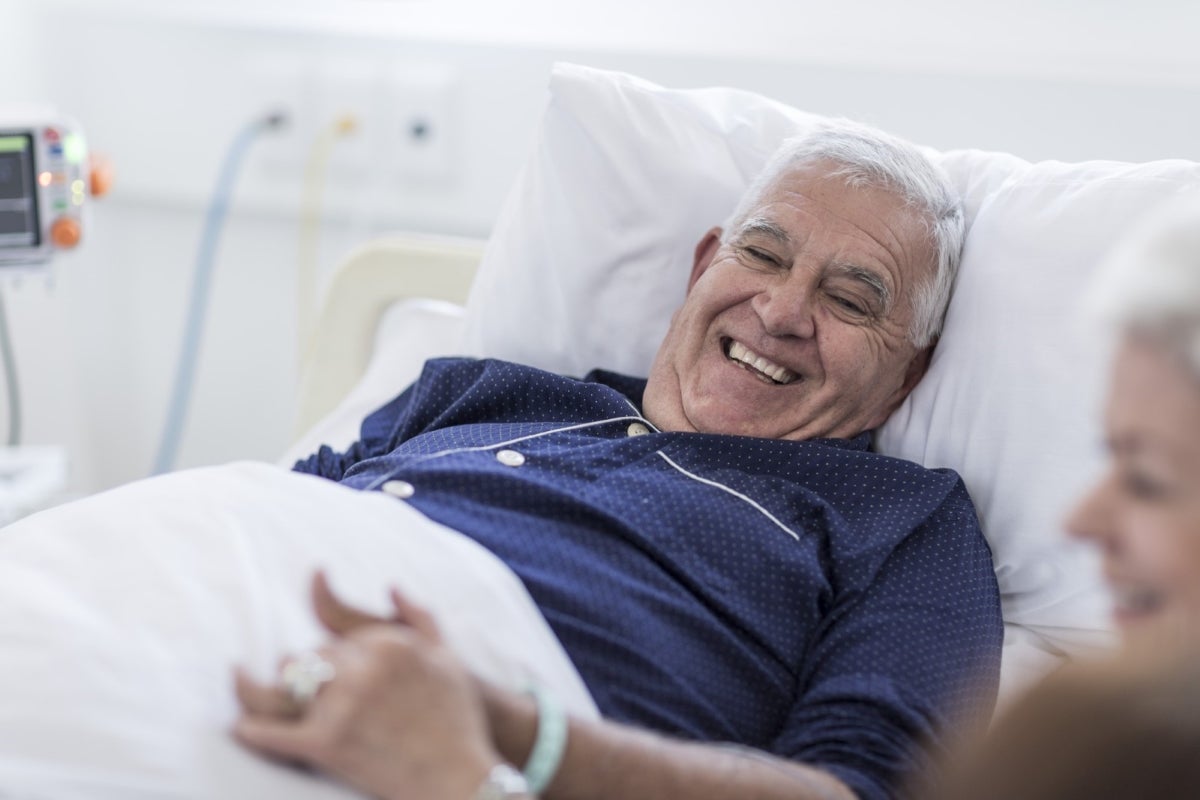
ECMO care for heart failure in Nashville
The ECMO program and experienced care teams at Ascension Saint Thomas Heart provide advanced care for patients who have life-threatening lung and heart conditions, including severe heart and respiratory failure, and who are critically ill. At Ascension Saint Thomas Heart, you have an entire team dedicated to your heart care. Your doctor may recommend extracorporeal membrane oxygenation (ECMO) therapy for you or a loved one when other therapies are not working. ECMO allows your lungs and heart to rest while they’re recovering from illness or injury. ECMO may also be used for patients waiting for a heart transplant. This therapy maintains blood flow and oxygen to vital organs like the brain, kidneys and liver.
Heart care teams specializing in ECMO
Your Ascension Saint Thomas ECMO care team may include cardiovascular surgeons, heart failure cardiologists, intensive care doctors, intensive care nurses, pulmonologists, respiratory therapists, hospitalists, perfusionists and more. Our ECMO-trained specialists deliver advanced care for complex heart and lung conditions, including:
- Cardiac failure:
- Cardiac arrest
- Cardiogenic shock following heart surgery
- Drug overdose
- Heart attack
- End-stage heart failure (as a bridge to heart transplant, LVAD, or total artificial heart)
- Ongoing life-threatening arrhythmias
- Myocarditis
- Sepsis or stress-induced heart failure
- Valvular disorders with cardiogenic shock
- Respiratory failure:
- Acute respiratory distress syndrome
- Bacterial or viral pneumonia
- Lung rupture (pneumothorax)
- Pulmonary embolism
- Status asthmaticus
Ascension Saint Thomas Heart has an ECMO transport team of nurses, perfusionists and paramedics who can transport patients from other medical centers to our comprehensive heart failure center for advanced care.
To transfer a patient call - 1-888-ECMO-911
Frequently asked questions
How does ECMO work?
A surgeon places one or more plastic tubes, called a cannula, into large blood vessels in your chest, neck or groin. The ECMO pump circulates your blood through the machine’s artificial lung or oxygenator. Carbon dioxide is removed from the blood and oxygen is added. As oxygenated blood leaves the oxygenator, it is warmed before returning to your body.
What happens while on ECMO?
A member of your care team is with you 24/7 to monitor your machine and provide care. Your doctor uses blood tests, X-rays and other tests to make sure you are responding well to your treatment.
Are there different types of ECMO?
There are two types of ECMO support:
- Venoarterial ECMO (VA ECMO) is used when the heart and lungs need support. The blood leaves the body from a vein, receives oxygen and is returned through an artery. This allows your heart and lungs to rest and recover.
- Venovenous ECMO (VV ECMO) is used for lung support when the heart is still working well. The blood leaves the body from a vein, receives oxygen and is returned through the same vein or another vein. This allows the lungs to rest and recover.
Can you be awake on ECMO?
Yes. Depending on your health, your care team may choose to keep you awake while on ECMO support. This “awake and walking” approach allows you or your loved one to communicate with staff and family and participate in occupational and physical therapy to build strength and speed your recovery. Your safety is our priority, so your care team will keep you awake only in some cases.
Transfer care to the ECMO team
Early consultation with the ECMO care team can help physicians know when to refer patients to an ECMO program. A transfer may be recommended for patients who have received appropriate medical management and meet one or more of the following:
- Cardiac failure:
- Cardiac index <2.2 L/min/m2
- Evidence of end-organ hypoperfusion:
- Lactate > 2 mmol/L
- Low urine output
- Cool extremities
- Elevated liver enzymes
- Norepinephrine > 0.2 mcg/kg/min or equivalent
- Adding a 2nd vasopressor or inotrope
- SCAI Stage C or higher
- Respiratory failure:
- Severe hypoxemia (PaO2 : FiO2 ratio <100) despite best practices including:
- PEEP ≥ 10 mmHg
- FiO2 ≥ 80%
- Prone positioning
- Neuromuscular blockade
- Severe air leak syndromes preventing optimal mechanical ventilation settings
- Inability to achieve lung-protective ventilation (plateau pressure <30)
- Hypercarbic respiratory failure (PaCO2 > 60 with pH < 7.25)
- Severe hypoxemia (PaO2 : FiO2 ratio <100) despite best practices including:
To transfer a patient, please call 1-888-ECMO-911.